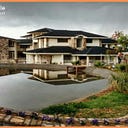6 Amazing Ways for Productive Parents-Teacher Meeting
Stay connected with parents
Parents ought to be able to get in touch with their child’s teacher. Often, email is the most convenient approach for you to receive messages and respond to parents, but phone calls or future conferences are necessary, too. Set the rules and limits for future communications.
Google Voice permits academics to create phone numbers that may forward to their mobile phone — while not giving out their number. Remind maybe a texting service that allows teachers and schools to conveniently contact students and oldsters while not using personal phone numbers.
At school in Dehradun, which is the well-known boarding school in Dehradun, parent-teacher conferences provide each party with the chance to see a child’s tutorial progress and create inspiration for future success. Effective academics plan, listen to parents and ensure every conference remains jam-packed with workable solutions that have the student’s best interest in mind.
Remain professional at all times
Teaching may be a difficult job, and you will be tempted to stray into unprofessional or excessively social territory throughout conferences. many conversations or topics ought to ne’er be mentioned with parents or with alternative academics in professional spaces, including:
- They are speaking negatively regarding school administrators or other academics.
- You are comparing two or more students to every other.
- We were discussing another student’s behavior, family, or performance.
- You are blaming parents for a child’s performance or struggle.
- They are making fun of scholars or their families.
- You are arguing with parents.
- They are complaining regarding the school or its policies.
If a parent becomes hostile, don’t have interaction
No matter how prepared and affirming academics are, some parents could become hostile. Some of them are wont to hearing bad news, don’t trust academics, feel a requirement to defend their kid, or are upset regarding something else and take their anger out on you.
Try to stay calm and follow a few tips
- Emphasize the positive.
- Let the parents speak initially.
- Use active listening. Don’t simply stay quiet — extremely and mindfully listen.
- Discuss how each party wants what’s best for the kid.
- Agree on a strategy and obtain on the same page before including the kid within the conversation.
Don’t create assumptions regarding parents or students
We’ve all heard the negative teacher say, students and parents. “Oh, the apple doesn’t fall far from the tree with one!” Make sure that you don’t have interaction in judgemental talk or create parents want they’re being judged whereas conferencing with you. View all parents as partners as a result of, like it or not, they are. Work to ensure that even the most challenging students and parents feel like welcome teammates.
Encourage questions
Approachable academics build a long-lasting reference to parents and promote a positive experience. You wish to make sure that your students’ oldsters feel comfortable asking questions on their child’s tutorial success, friendships, and other traits. Make sure to raise parents if they need any queries at least twice throughout your meeting. You want to take out time and space for them to speak so that they don’t want, they’re being talked at and rushed out. Ensure they have your email address so that they know they will ask you queries at any point throughout the school year.
Give parents responsibility
Children do better in class once their parents are concerned. Effective academics involve parents by asking them to watch homework or sign progress reports.
For students who struggle with finishing homework assignments, recommend that they use a planner which parents check it every night. Students ought to place their completed work right next to the things listed in their planner. This makes it very easy for parents to verify, and it will increase trust, responsibility, and consistency.
If a kid lives with one parent who has one job, or if each parent work late, recommends an area study center, library, or tutoring program where that student will get help and have somebody check their assignments, so a routine is made with an involved adult.
